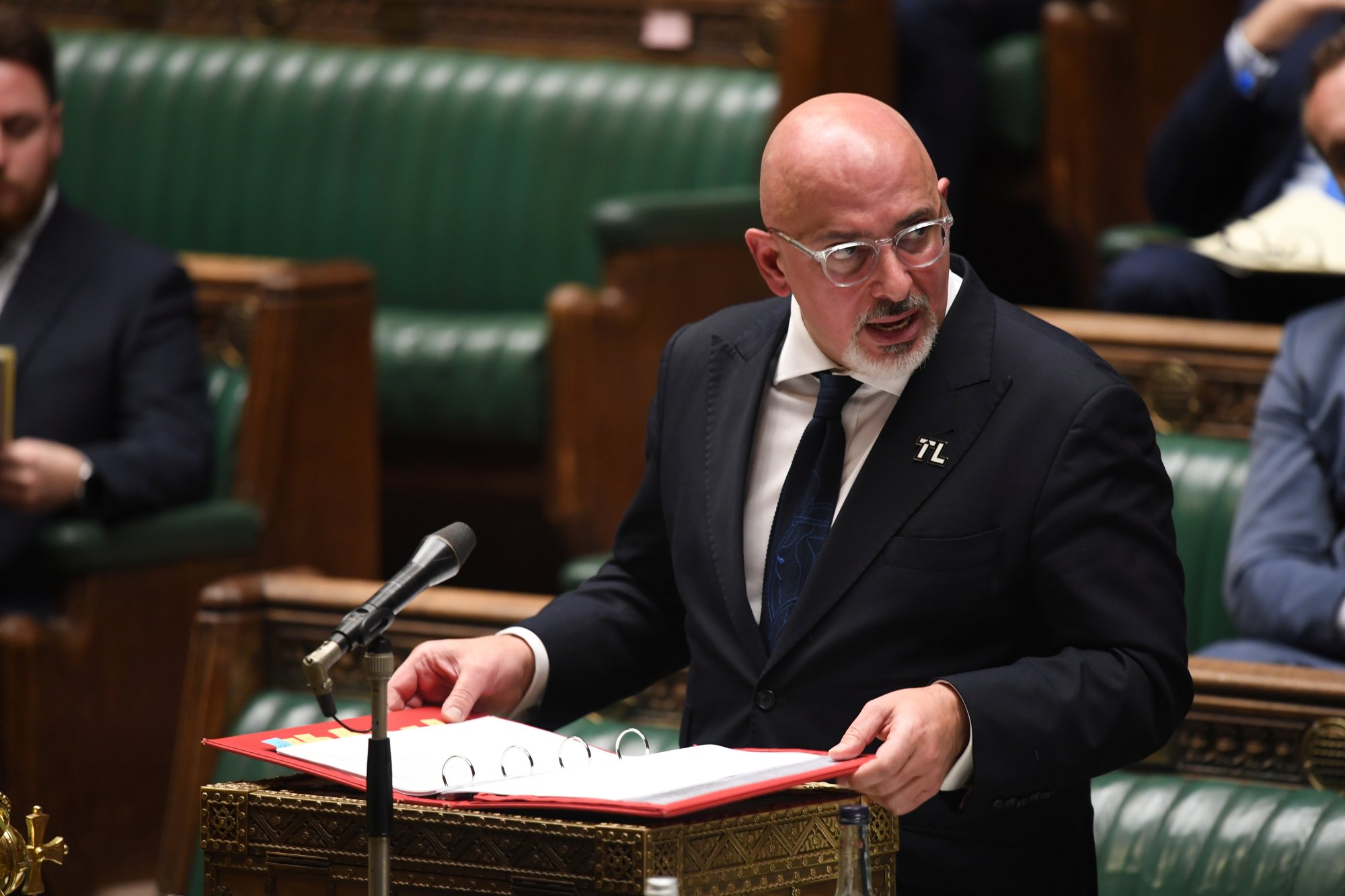
Omicron spreading among over 50s, says UK minister, but no need for more restrictions
- Education secretary Nadhim Zahawi says high uptake of booster jabs by older people means ‘nothing in data to make me believe we need go further’
- He also says ‘priority’ to keep schools open, although major staff shortages are feared across sector and already seen in health service
“We’re seeing leakage into the over-50s in terms of infection,” he told the BBC. “They are boosted – 90 per cent of the over 50s are boosted.”
He said the government would assess the situation in England on Wednesday. “There’s nothing in the data at the moment that would make me believe we need to go further.”

He also said toughened coronavirus measures in schools will not be in place “for a day longer than we need it” as staff shortages were feared across the sector.
Nadhim Zahawi has told head teachers to consider merging classes or sending groups of children home if the number of staff off work due to Covid-19 reaches critical levels.
But he said it was key to keep children in the classroom as much as possible and to keep schools open due to the impact on mental health.
“The priority is to keep schools open,” he told Sky News, following the announcement that masks would be recommended in the classroom for secondary school pupils, as well as twice-weekly testing.
Mr Zahawi said: “The testing, the staffing support we’re putting in place, and of course the ventilation is going to make a big difference to schools this year.
“The most important thing is to keep them open. We monitor staff absenteeism, I just said to you we’re running at about 8 per cent last year. If that rises further then we look at things like merging classes, teaching in bigger numbers.”
Mr Zahawi admitted it was “more challenging, of course, to deliver education with masks on in the classroom”.
Covid: England brings in classroom face masks; Israel surge ‘means herd immunity’
But he said: “This is an aerosol-transmitted virus and if you’re wearing a mask, if you’re asymptomatic, then you’re less likely to infect other people.”
And he said he hoped guidance that secondary schoolchildren should wear masks in the classroom again would not be in place “for a day longer than we need it”.
It comes as the Prime Minister has ordered ministers to draw up contingency plans to tackle staff shortages caused by coronavirus across industries.
There are particular concerns about the National Health Service (NHS), with The Sunday Times newspaper reporting that United Lincolnshire Hospitals NHS Trust had declared a “critical incident” with “extreme and unprecedented” staff shortages resulting in “compromised care”.
Coronavirus: Dutch police raid rave party in breach of Covid-19 rules
In Yorkshire, the region’s ambulance service said “the added challenge of Covid-19-related absence among staff … is having a significant impact on our frontline operations”.
But Mr Zahawi said the NHS was “very good at being able to move staff around”.
He said the NHS was used to dealing with staff being off over the winter and during “big flu viruses”.
He told the BBC: “The NHS is very good at being able to move staff around within the system. They have an infrastructure to do that. We now have 10,000 more nurses and 3,000 more doctors than we had last year working in the NHS.
Hong Kong experts argue for tougher approach to boosting Covid-19 vaccinations
“But the NHS is very good at sort of making sure that staff shortages are monitored and dealt with pretty well. They’ve done it over many years in winter when we’ve been, you know, have big flu viruses around.”
It was put to Mr Zahawi that the health service had never had to deal with a situation like coronavirus. He said: “I don’t disagree with you.”



